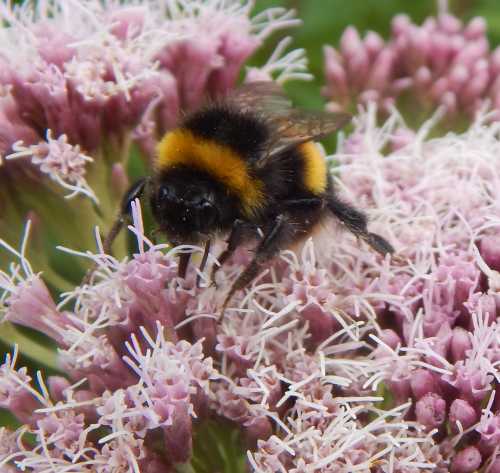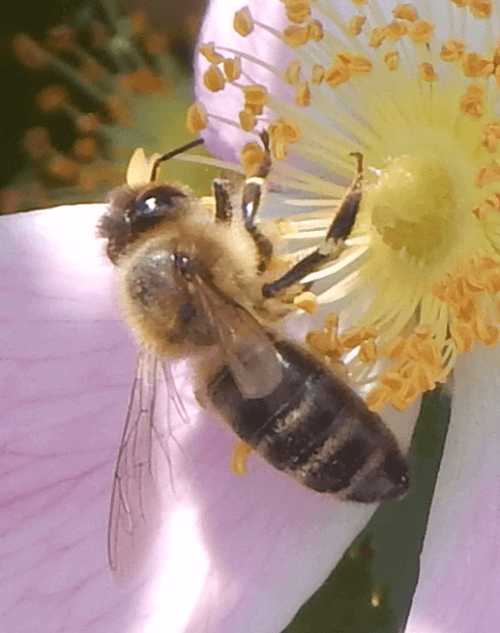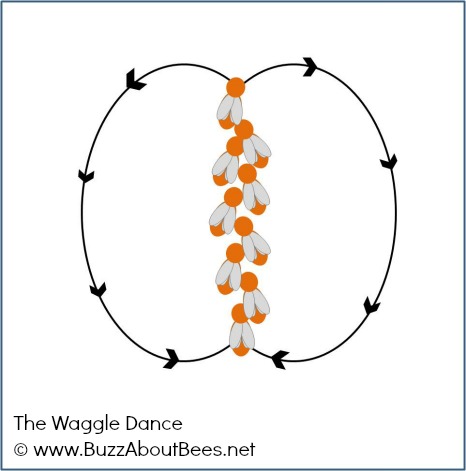Organic Honey
Updated: 7th February 2021
Can honey really be organic? Organic
beekeeping is actually a very complex business. Below are my tips for
purchasing honey generally – including local honey and organic honey, but
first, I think it’s worth going into a little background information.
About Organic Honey
Update:
Please
note, regulations and practices are changing and evolving all the time. The
information below was written some years ago, and may be out of date. Please check in your local region
or country for further information. A good place to start would be
your government office responsible for food regulations and labelling. You could also check your government agency responsible for farming and agriculture.
Organic Beekeeping and Organic Honey
Regulations and standards for organic honey may vary by country, as well as the way in which these standards are monitored.
In the UK for example, standards are extremely strict.
You can read more about this on my page
Organic Beekeeping
(opens a new window).
Sadly, sometimes, people buying organic honey in the UK, may actually be purchasing imported honey.

Given the foraging range of honey bees, finding sufficient suitable organic foraging sites may not be easy
Bees
fly to find suitable sources of nectar and pollen. Placing bees on
organic farms does not necessarily mean the honey produced could be
certified as organic honey if there are possible
sources of contamination nearby, from adjoining roads and motorways, non-organic farms and so on, which may be within flying and foraging distance for the
honey bees!
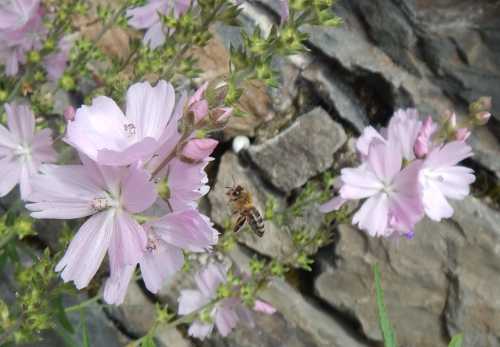 Honey bee and Prairies mallow.
Honey bee and Prairies mallow.The location must be one which can support a
number of bee hives, and that is rich in suitable flora, to provide all
the nectar and pollen needed by the bees. Given the restrictions
imposed for organic beekeeping, this is not always easy. In countries with a large land mass this may be easier to achieve as long as areas of chemical and intensive agriculture can be avoided.
Not all beekeepers can afford organic certification
That
said, many smaller scale beekeepers and individual beekeepers, follow
organic beekeeping principles as closely as they can, without
certification for producing organic honey, but as a minimum, they will
usually seek to:
Avoid using chemicals in the hive,
such as veterinary medicines and pesticides. Instead, they’ll ensure to
maintain the bees in optimum health, resorting to natural treatments
and methods in dealing with any problems.
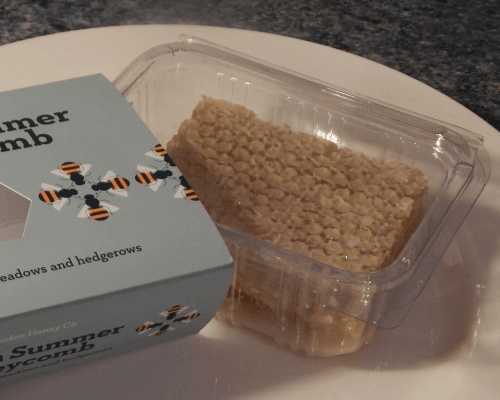 Packaged honeycomb.
Packaged honeycomb.They will
keep their bees in wooden hives made from untreated timber.
Although they cannot guarantee the bees will not come
into contact with pollutants, organic beekeepers will generally do what
they can, keeping the bees on organic allotments, in organic gardens or
farms, for example.
It is usual among organic
beekeepers that honey bees are able to eat their own honey during the
winter months. (Note, there is no requirement on commercial non-organic
producers to ensure the bees get their own honey, and they may instead
be fed sugar, and all the honey bees' stores may be removed).
Some General Thoughts On Buying Organic Honey
Before we go any
further, and into my tips for buying organic honey versus other honeys,
here are my views about the sale of honey generally:
Bringing honey to the table takes effort
Honey takes considerable effort to produce, especially where the bees are concerned – you can read more on this page:
How Do Bees Make Honey?
Beekeepers themselves may go to considerable effort and expense in
bringing honey to the table. Yet sadly, with mass consumerism and the
rise of the big supermarket, many of us have lost touch with nature, and
how food is produced. Big Supermarkets compete on price and many
people want bargains – cheap food, this is understandable, but there is a price to be paid
somewhere along the line.
On the other hand, if you are able to purchase directly from a beekeeper, you can cut out the large supermarket chain.
We’ve seen shocking
standards in so-called honey production, one of the biggest scandals in
some countries has quite simply been that the product sold as honey, is
hardly honey at all – instead, it is a concoction of honey and corn
syrup or is contaminated with chemicals. As I said, there’s a price to be paid for ‘cheap’ somewhere.
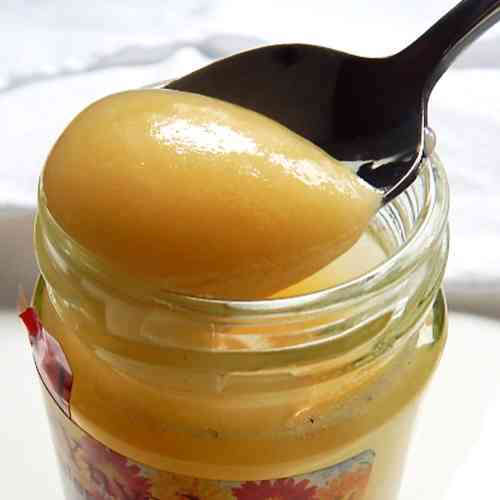
It’s just my view, but I think honey should NEVER be treated as a cheap commodity. Honey is precious, and if man is going to harvest it, it should be valued as such, viewed as a treat, appropriately priced, and the standards should be maintained to a very high level, both in the standard and purity of the honey itself, the treatment of the wonderful honey bees that make it, and appropriate reward for beekeepers maintaining high standards.
Honey for bees as well as humans
Honey bees produce honey as winter stores they can eat, when they are unable to forage, or there is little suitable forage material available to them. You can read more on the page: Why Do Bees Make Honey?
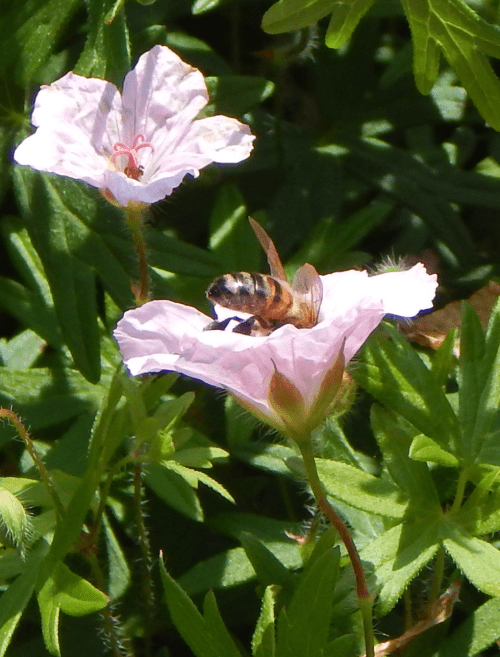
Therefore, beekeepers need to be mindful of this. A skilled beekeeper will only take some of the honey, leaving behind what the bees
need for themselves.
Many beekeepers point out that we need to ensure the honey bees have honey for themselves.
Author and beekeeping guru, Paul Peacock writes in his book, Keeping Bees:
“A careful beekeeper will not take more than the colony can easily afford to miss”.
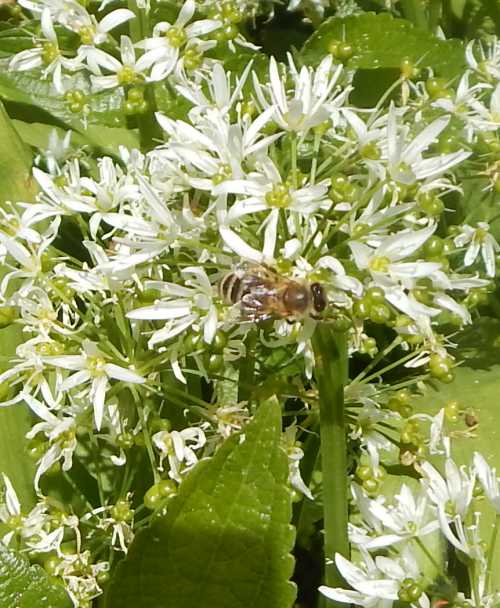 Honey bee foraging on wild garlic (Ramsons).
Honey bee foraging on wild garlic (Ramsons).Well-known Phil Chandler, author of The Barefoot Beekeeper and Managing The Top Bar Hive says:
“We consider it as self evident that if the bees store honey for their own use, then honey is what they want and need.
Sugar syrup is, at best, a poor substitute. Therefore, we strive to leave enough honey in the hive for the bees’ winter feed”.
You can read more about why beekeepers feed sugar to bees.
Always remember, however, that you can also do your bit to help honey bees and other bees in your area, by planting flowers for bees, and cutting out the pesticides. I have lots of guidance on this website, with many lists of plants.
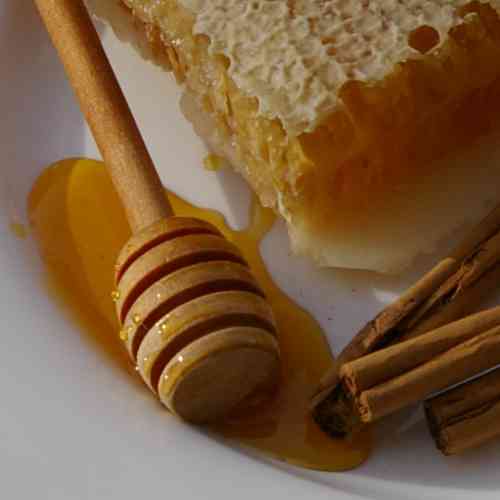
Also, Is organic honey better for you? Is organic honey healthier?
At the time of writing, I have not seen any investigation into this, although there may be some around. There are various studies indicating that contamination of honey with pesticides and other chemicals can occur.
My personal preference is to avoid eating pesticides by purchasing organic where I can, and growing some of my own fruit and vegetables.
I have
- a general page comparing honey and sugar, as well as
- a page asking 'Is honey good for you'.
These pages attempt to look honestly at the subject, complete with nutrition tables and scientific evidence.
Next page
– tips for buying organic honey and local honey vs honey from the high street supermarket.
Ever wondered......
Do bumble bees make honey?
